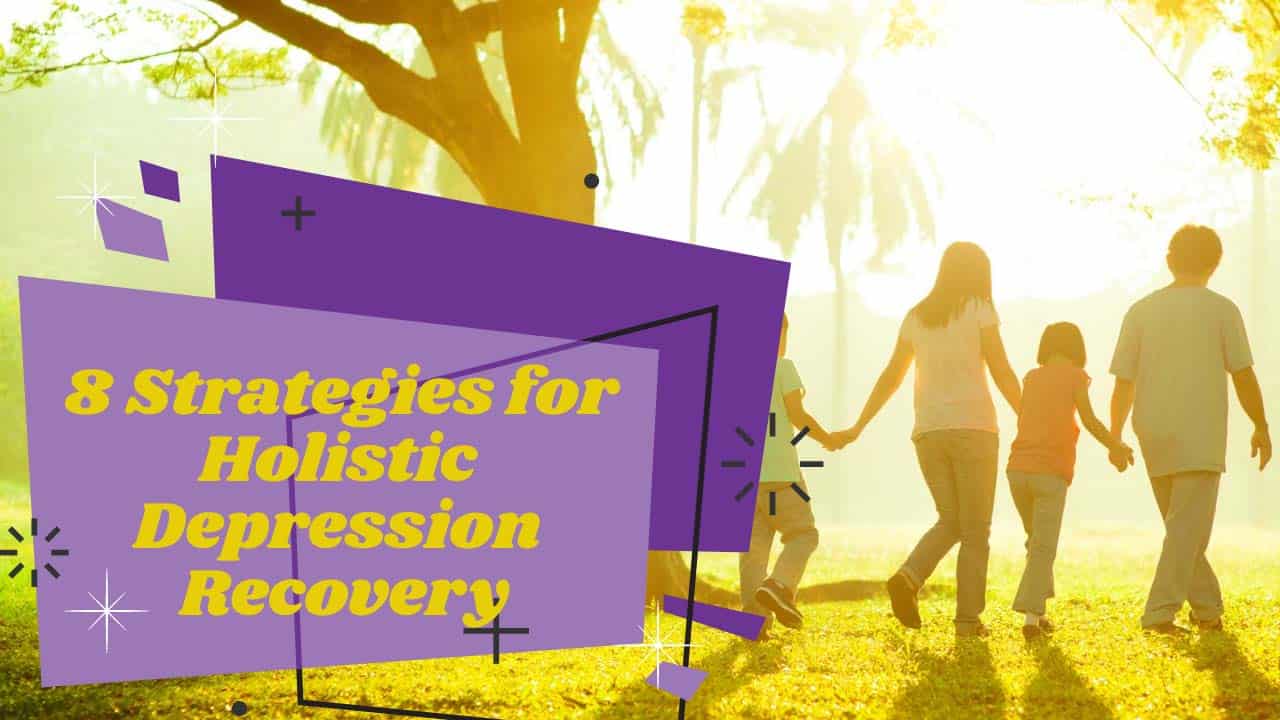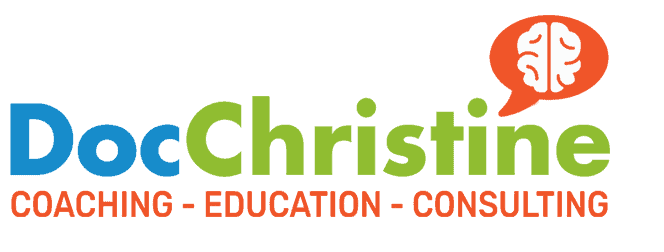8 Strategies for Holistic Depression Recovery
Depression is, unfortunately, one of the most common mental health disorders in the United States. Each year, it affects millions of people of all ages and backgrounds. While antidepressant medications can be helpful for some people, they are not a cure-all. For many people, holistic depression recovery is the key to lasting happiness and well-being. This blog post will discuss 8 strategies to help you achieve holistic depression recovery!

Get Moving
It may seem difficult to believe, but exercise truly is one of the most effective treatments for depression. It releases endorphins, which have mood-boosting effects. Additionally, it helps to improve sleep and increase energy levels. If you’re unsure where to start, try something simple like walking or yoga. You can also look for online workout videos or join a local gym. Aim for 30 minutes of moderate-intensity exercise each day. This could include walking, biking, jogging, or swimming. If you’re not used to exercising, start slow and gradually increase your activity level over time. Exercise doesn’t have to be boring! Find an activity you enjoy and strive to make it part of your everyday routine.
Connect with Nature
Spending time in nature can help improve your mood and reduce stress. If you live in a city, try to find a nearby park or green space to visit regularly. Adding some plants or flowers can bring nature into your home. Even a small pot of herbs can make a big difference! If you have the chance, consider a weekend trip to the mountains or the beach. Spend time hiking, swimming, or just relaxing in the great outdoors. Be sure to step outside every day, even if you only do so for a few minutes. Getting fresh air and natural light can do wonders for your holistic mental health.
Eat a Healthy Diet
What you eat will have a significant impact on your mood and energy levels. Eating lots of processed foods, sugary snacks, and unhealthy fats can make depression worse. Focus on eating unprocessed foods such as lean protein, vegetables, and fruits. Avoid caffeine and alcohol, which can worsen your anxiety and sleep problems. You might also want to consider an elimination diet to see if you have any food allergies or sensitivities that could be contributing to your depression. Eating right is one of the simplest but most important things you can do for your mental health. Make sure to nourish your body with healthy foods every day!
Get Enough Sleep
Sleep is essential for good mental health. When you’re sleep-deprived, you’re more likely to feel anxious, irritable, and down. Aim to achieve 7 to 8 hours of sleep each night. If you have trouble falling asleep, try relaxation techniques like deep breathing or progressive muscle relaxation. You can create a bedtime routine to wind down before sleep. This might include reading a book, taking a bath, or writing in a journal. Getting enough rest is crucial for managing depression and improving your overall well-being. Make sure to get plenty of ZZZs!
Avoid Substance Abuse
Depression and substance abuse often go hand-in-hand. If you’re struggling with depression, it’s essential to avoid alcohol and drugs. Substance abuse can quickly make depression worse and lead to a whole host of other problems. If you’re struggling with an addiction, get help from a professional treatment program. There are many ways we can cope with depression without turning to alcohol or drugs. Seek out healthy coping mechanisms that will support your recovery journey. Avoiding substance abuse is an integral part of holistic depression recovery!
Find a Therapist
If you’re struggling with depression, therapy can be an extremely helpful treatment for your holistic mental health. A therapist can help you understand your thoughts and feelings, identify negative thought patterns, and develop healthy coping strategies. Therapy can also be a safe place to vent about the things that are bothering you and receive support from someone who is there to listen to you for many days and understand what you’re going through. If you want to seek therapy but you’re unsure where to start, ask your doctor if you can get a referral or try looking for a therapist online. Many therapists offer free initial consultations, so it’s easy to find one that’s a good fit for you. A mental health coach, counselor, or therapist can be an excellent addition to your support system! Set an appointment today and start taking crucial steps towards recovery!
Join a Support Group
If you’re struggling with depression, you’re not alone. There are millions of people worldwide who understand what you’re going through. One great way to find support is by joining a local or online support group. This can be a great place to share your experiences, vent about the things that are bothering you, and get advice from others who have been there.
Mental health professionals often lead support groups, which can also be a great place to get referrals for therapy or other services. Many different types of support groups are available, so take some time to find one that’s right for you! Joining up with a support group is an excellent way to find community and support during your depression recovery journey!
Practice Mindfulness
Mindfulness is a meditation that involves focusing your attention on the present moment. This can help you become more aware of your thoughts and feelings and learn to accept them without judgment. We can use many methods to practice mindfulness, but one simple way to get started is by focusing on your breath. Sit or lie in a comfortable position and close your eyes. Slowly inhale and exhale, paying attention to the sensation of your breath moving in and out of your body. If your mind wanders, focus on your breathing.
You might also want to try mindfulness exercises like walking meditation or progressive muscle relaxation. Practicing mindfulness can help you manage stress, anxiety, and depression. Give it a try today! Mindfulness is a great way to combat holistic depression in small but meaningful ways.
These are just a few of the many strategies that can help you recover from depression. Remember that your recovery is a journey. Take these things one day at a time, and be patient with yourself. You deserve to embrace a happy, fulfilling life, and we hope these holistic mental health tips help!
